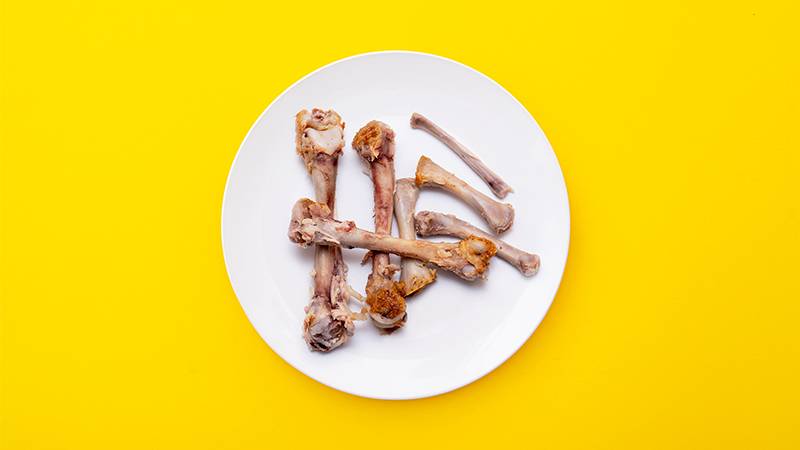If you’re like me, a composting enthusiast always on the lookout for sustainable ways to enrich soil and reduce waste, you’ve probably pondered the question, “can you compost chicken bones?”
It’s a topic that has garnered considerable interest, not just for the sake of reducing kitchen waste, but also for the potential benefits it can offer to our gardens.
In this comprehensive guide, I delve deep into the world of composting chicken bones, providing you with well-researched information, hard facts, and answering the pressing questions to help you make an informed decision in your composting endeavors.
Can You Compost Chicken Bones?
The straightforward answer to the burning question, “can you compost chicken bones?” is yes, but with some caveats. Chicken bones are indeed biodegradable materials, breaking down over a considerable period, contributing to soil enrichment as they decompose. However, the bone breakdown process is significantly slower compared to other organic waste, taking anywhere from 60 days to several months.
Composting chicken bones is not a common practice in home composting endeavors mainly because they can attract pests and produce an unpleasant odor.
Moreover, they require a specific set of conditions to break down efficiently, including high temperatures and a well-maintained composting environment.
The Science Behind Composting Chicken Bones
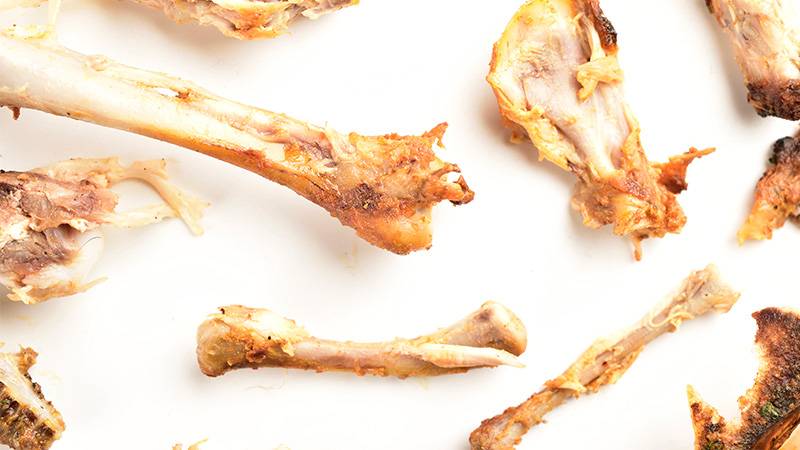
Understanding the science behind composting chicken bones begins with grasping their biodegradability. Chicken bones, like other organic materials, are indeed biodegradable, albeit at a slower pace compared to vegetable scraps and other common compost ingredients.
The bone breakdown process is a fascinating journey. Initially, the bones undergo a phase of microbial decomposition, where microorganisms start breaking down the organic matter present in the bones. This phase is followed by a leaching process, where nutrients such as calcium and phosphorus start to seep into the surrounding soil, contributing to soil enrichment and acting as a natural fertilizer.
However, it is essential to note that the decomposition process is significantly slower, taking anywhere from 6 months to 2 years, depending on various factors, including the composting environment and the initial condition of the bones. The high temperatures in a well-maintained compost pile can facilitate a faster breakdown, turning your chicken bones into a rich source of nutrients for your garden over time.
How to Compost Chicken Bones: A Step-by-Step Guide
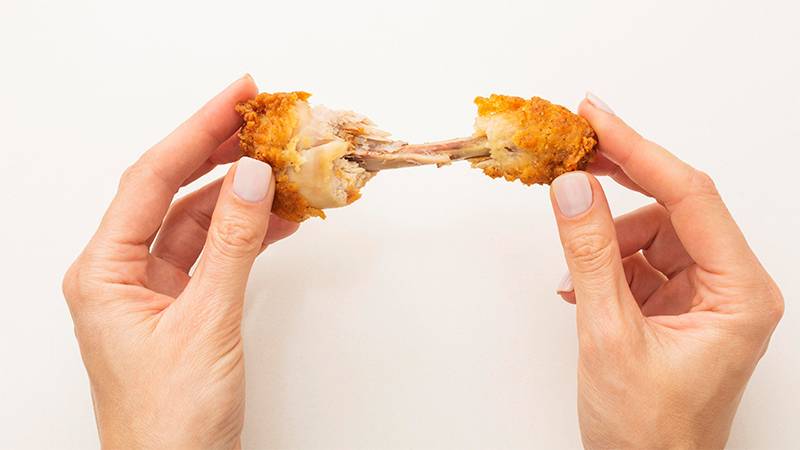
Before diving into the step-by-step guide, let’s first gather all the necessary materials to facilitate the composting process. Ensuring you have everything at hand will make the process smoother and more efficient.
Materials Needed
- Chicken bones (preferably broken into smaller pieces)
- Garden compost bin or pile
- Brown composting materials (e.g., leaves, paper)
- Green composting materials (e.g., vegetable scraps)
- A good quality compost thermometer
- Garden gloves
Steps
With the materials ready, follow this meticulous guide to compost chicken bones responsibly and turn them into a valuable resource for your garden:
1. Preparation of Bones
Start with clean, leftover chicken bones. Break them into smaller pieces to speed up the decomposition process.
2. Setting up the Compost Pile
In your compost bin or pile, create a balanced mix of green and brown composting materials, maintaining a ratio of 2:1.
3. Adding the Bones
Introduce the chicken bones into the pile, ensuring they are well-covered with compost materials to avoid attracting pests.
4. Monitoring the Temperature
Using a compost thermometer, maintain a high temperature between 130°F (54°C) and 160°F (71°C) to facilitate the bone breakdown process and kill any pathogens.
5. Regular Turning
Turn the compost pile regularly, at least once a week, to encourage aerobic decomposition and prevent unpleasant odors.
6. Patience is Key
Allow the compost pile to work its magic. This process takes time, ranging from several months to a couple of years, depending on the conditions.
7. Harvesting the Compost
Once the composting process is complete, and the bones have broken down into nutrient-rich compost, it’s time to harvest and use it to enrich your soil.
Common Mistakes to Avoid
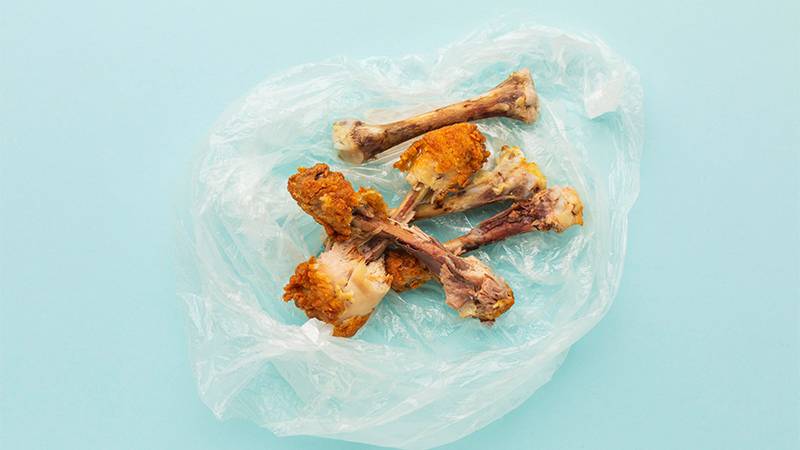
Embarking on the journey of composting chicken bones can be a rewarding endeavor for your garden and the environment. However, it is not devoid of challenges. Here, I highlight some common mistakes and offer tips to steer clear of them, ensuring a successful composting process.
Insufficient Heat
Not reaching the optimal temperature range of 130°F (54°C) and 160°F (71°C) can slow down the bone breakdown process and not kill potential pathogens. Ensure to maintain this temperature range for a healthy compost pile.
Poor Aeration
A well-aerated compost pile encourages aerobic decomposition, preventing unpleasant odors and facilitating faster breakdown. Turn your compost pile regularly to avoid this mistake.
Attracting Pests
Chicken bones can be a magnet for pests. Avoid this by burying the bones deep in the compost pile and covering them adequately with brown composting materials.
Impatience
Remember, composting chicken bones is a slow process, requiring several months to a couple of years. Patience is key to achieving the desired result of nutrient-rich soil enrichment.
Pros and Cons of Composting Chicken Bones
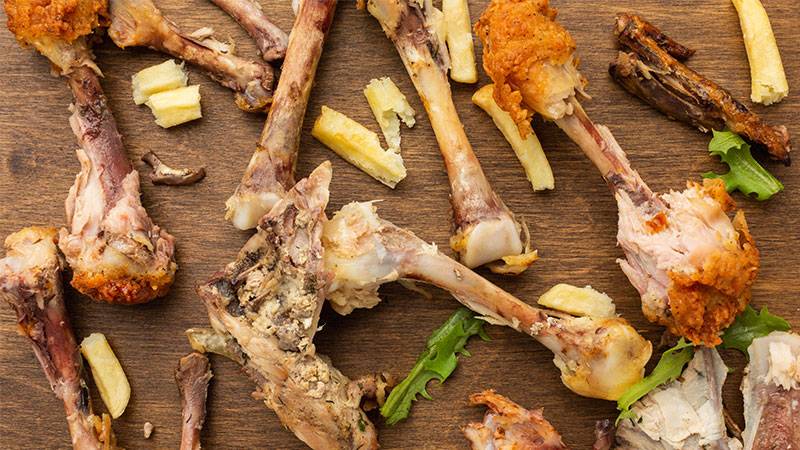
Composting chicken bones is a topic that garners mixed opinions. Let’s delve into the pros and cons to give you a balanced view.
Pros
Soil Enrichment
Chicken bones are rich in calcium and phosphorus, which can significantly enrich your soil, promoting healthier plant growth.
Waste Reduction
By composting chicken bones, you are reducing the amount of organic waste heading to the landfill, embracing a sustainable living lifestyle.
Natural Fertilizer
The end product of composted chicken bones serves as a nutrient-dense, natural fertilizer for your garden, enhancing soil structure and fertility.
Cons
Slow Decomposition
The bone breakdown process is slow, taking several months to years, which might not be ideal for composting enthusiasts looking for quicker results.
Pest Attraction
Chicken bones can attract pests, posing a challenge in maintaining a hygienic composting environment.
Odor Issues
If not managed well, composting chicken bones can produce unpleasant odors, detracting from the joy of home composting.
Frequently Asked Questions (FAQ)
The bone breakdown process can take anywhere from several months to a couple of years, depending on the conditions of your compost pile, including temperature and aeration. Maintaining a high temperature between 130°F (54°C) and 160°F (71°C) can facilitate faster decomposition.
While it is possible to put chicken bones directly in your garden, it is not recommended due to the slow decomposition process and the risk of attracting pests. It is better to compost them first to reap the soil enrichment benefits without the drawbacks.
Yes, composted chicken bones are excellent for the soil. They add essential nutrients such as calcium and phosphorus, acting as a natural fertilizer and promoting healthy plant growth.
It is advisable to avoid putting chicken bones in the garbage disposal as they can cause clogs and damage the disposal unit. Chicken bones are hard and can dull the blades over time.
Absolutely, chicken feathers are rich in nitrogen, making them a great green material for your compost pile. Composting them alongside the bones can create a nutrient-dense compost, beneficial for your garden.
Conclusion
In this guide, we’ve unraveled the answer to the pressing question, “can you compost chicken bones?”
We’ve navigated through the science behind the decomposition process, the step-by-step guide to doing it right, and the common mistakes to avoid. While it’s a path laden with challenges, the rewards of soil enrichment and sustainable living are well worth the effort.
I encourage you to embark on this eco-friendly journey, nurturing your garden with the rich nutrients derived from composted chicken bones.
Ready to give it a try? Start your composting adventure today and witness the transformation in your garden!

